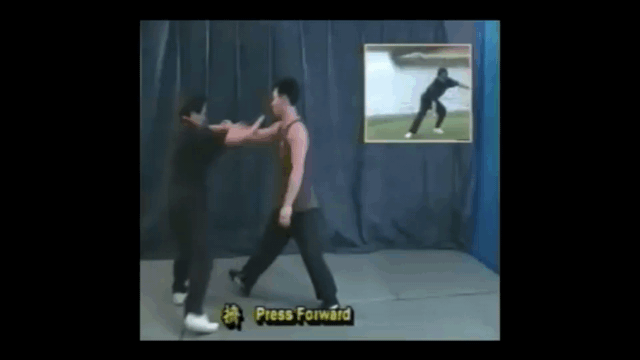Re: Fajin in Xingyiquan
D_Glenn wrote:origami_itto wrote:Do you ever feel like the focus on this has lead to over emphasizing movement in the lower back?
Not at all. The movement of the lower back is a natural movement. I did focus on learning it from roughly 1998 to 2001 but I was, and still am, using that natural instinctual movement to jolt all the flesh of my abdomen to start of wave of flesh moving, which is not natural, but I have made it a new- natural. Like riding a bicycle. You can’t Not know how to ride a bicycle after you learn how to. Like I said before, I have to use ‘a thought’ to not do it when I’m striking. We call this ‘Containing the Power’, or ‘Circling the Power Back Around’, which is a part of our practice. Let me see if I can find a video clip of it.
From your posts on this thread, you made it sound like you can easily do this?
Well it's not precisely the same thing.
The pieces of the body are perhaps moving in similar ways but they are motivated differently.
The abdomen is used to coordinate the limbs, but it doesn't "issue" force. The whole body is involved in "storing" energy 蓄勁 (Xù jìn) and "releasing" force 發勁 (Fā jìn).
When we talk about "li" we're talking about the direct force a muscle is capable of exerting through contraction in isolation or in combination with other muscles.
Our "Li" is just one force among many that is present. Intelligently preserving that force and combining it with the other forces and energies at our disposal is what creates the "jin" that we express.
So "issuing" as it were, is a matter of, at a basic level, shifting the weight from one leg to another and sinking and letting that force move down to the ground, back up through the legs, THROUGH the lumbar region.
In the lumbar, we're naturally tracking the force coming up, like a flag in the breeze. It's not generating it, it's following it and not getting in the way. Moving in the same way you describe, but passively.
Since we're not using the muscles in that region to create the energy, we're able to use them to direct the energy. We get a lot more energy out of our legs than we do out of our lower back.
The fingers are connected to each other across the back and down into the waist so the energy naturally tracks those tendon paths.
By using the mind to "direct" the energy (regulate tension between antagonistic muscles to guide it to a path of least resistance) the arms express the spiral waveforms directly, preserving that energy until we release it as force.
I've got more to say about it but will save it for a blog.






 Just encouraged that maybe their time can be better spent elsewhere, as they're not going to progress and get what they think they want. I have found that being blunt and forthright about their prospects and giving them a clear choice of what needs to change in their approach to learning works well and keeps everyone happy. Note: many come to me for fajin training, few stay when i tell them, on the first day, it's a byproduct of another kind of mental cultivation. Same thing for Qi cultivation and the such.
Just encouraged that maybe their time can be better spent elsewhere, as they're not going to progress and get what they think they want. I have found that being blunt and forthright about their prospects and giving them a clear choice of what needs to change in their approach to learning works well and keeps everyone happy. Note: many come to me for fajin training, few stay when i tell them, on the first day, it's a byproduct of another kind of mental cultivation. Same thing for Qi cultivation and the such.